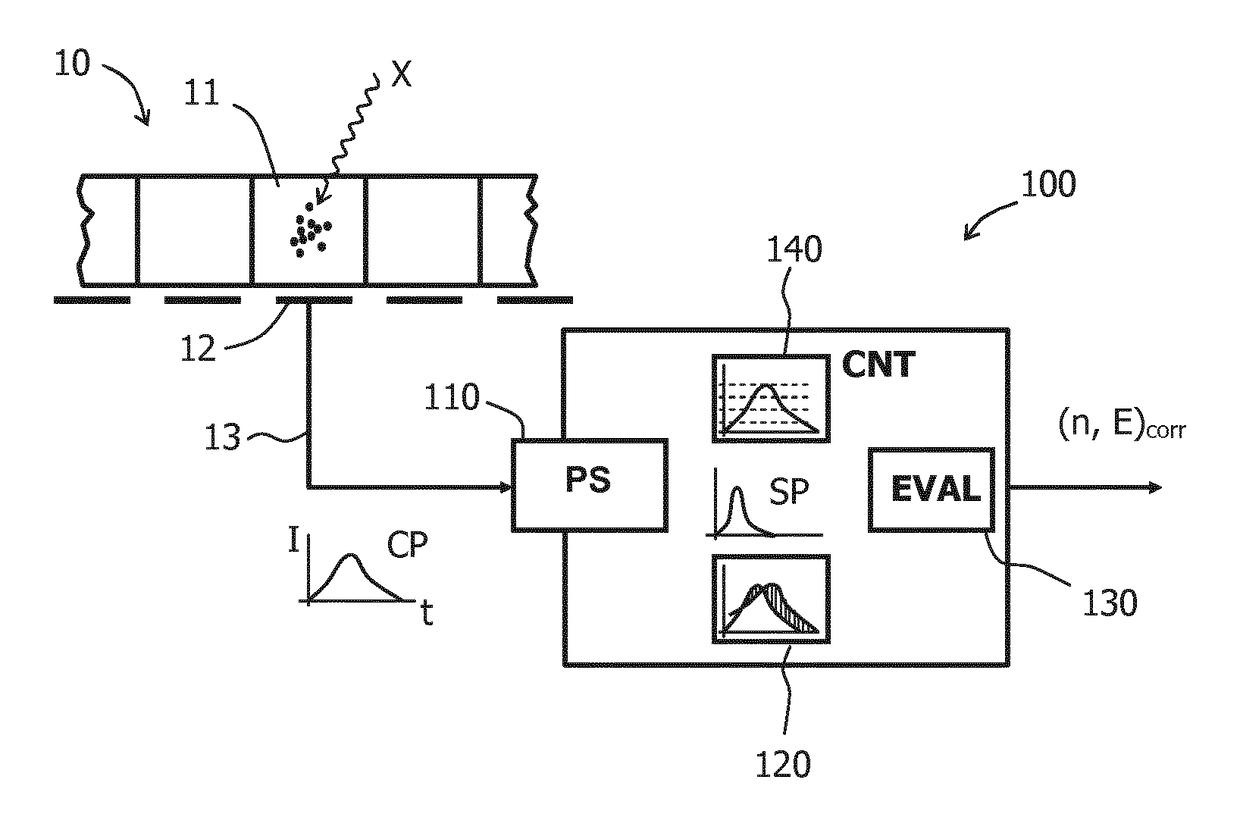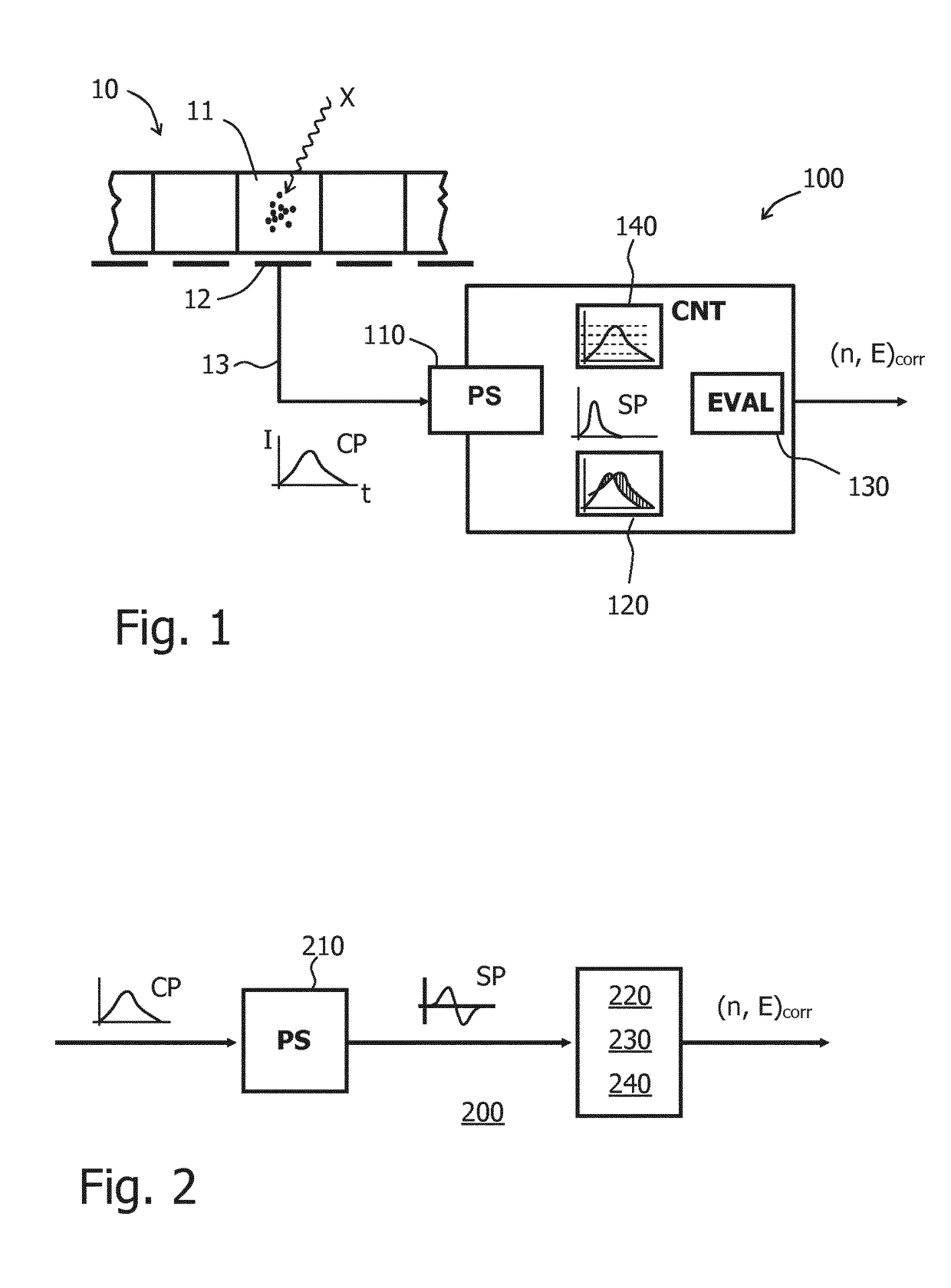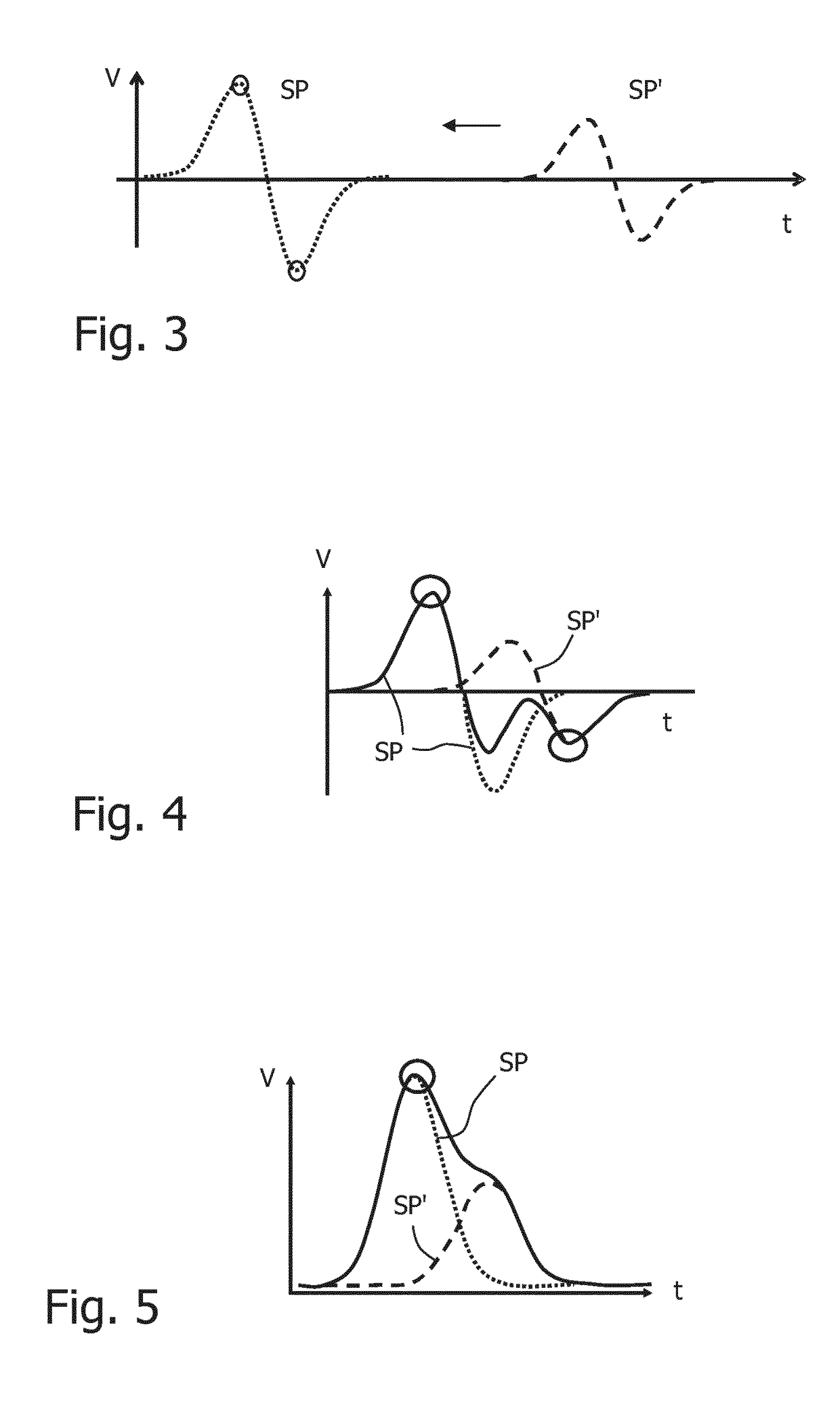Pulse processing circuit with correction means
a processing circuit and correction means technology, applied in the field of counting current pulses, can solve the problems of affecting the detection accuracy of photons, so as to achieve the effect of more accurate detection of photons
- Summary
- Abstract
- Description
- Claims
- Application Information
AI Technical Summary
Benefits of technology
Problems solved by technology
Method used
Image
Examples
first embodiment
[0064]In FIGS. 2-5, a first embodiment is illustrated that is particularly suited for dealing with the problem of pulse pile-up at high count rates. FIG. 2 schematically shows the associated pulse processing circuit 200, for example realized as an ASIC. The pulse processing circuit 200 includes a CSA (not shown) followed by a specific pulse shaper 210 that transforms the original current pulse CP into a shaped pulse SP.
[0065]The shaped pulse SP is forwarded to an integrated spectral counting and correction module 220, 230, 240 comprising several comparators with the possibility to apply positive or negative thresholds. The combination of CSA and pulse shaper is capable to produce bipolar pulses SP with comparable positive and negative pulse heights. Furthermore, a logic unit processing the comparator signals and a data storage unit are included. The logic should be able to determine the number of events contributing to one pulse train and to identify the pulse heights.
[0066]A centra...
second embodiment
[0074]FIGS. 6-11 illustrate the invention that is particularly suited to deal with charge sharing. “Bad” current pulses (affected by charge sharing) differ from “good” ones (not affected) by the current pulse envelopes, meaning that also shaped pulses will show different heights and different timings with respect to the current pulse maximum. The basic idea of this embodiment is to use a pulse shaper ensemble 310 with two individual pulse shapers 310a, 310b per pixel instead of one, each individual pulse shaper having different pulse shaping properties (e.g. different timing constants or different shaping envelopes). Each incoming current pulse thus creates two shaped pulses SP1 and SP2 with different pulse shapes. Also, the shaped pulse maxima might show a time difference to each other. An associated detection module 320 can then use the ratio of the shaped pulse heights and / or their time difference to distinguish “good” pulses from “bad” pulses. Moreover, one of the shaped pulses ...
PUM
 Login to View More
Login to View More Abstract
Description
Claims
Application Information
 Login to View More
Login to View More - R&D
- Intellectual Property
- Life Sciences
- Materials
- Tech Scout
- Unparalleled Data Quality
- Higher Quality Content
- 60% Fewer Hallucinations
Browse by: Latest US Patents, China's latest patents, Technical Efficacy Thesaurus, Application Domain, Technology Topic, Popular Technical Reports.
© 2025 PatSnap. All rights reserved.Legal|Privacy policy|Modern Slavery Act Transparency Statement|Sitemap|About US| Contact US: help@patsnap.com



